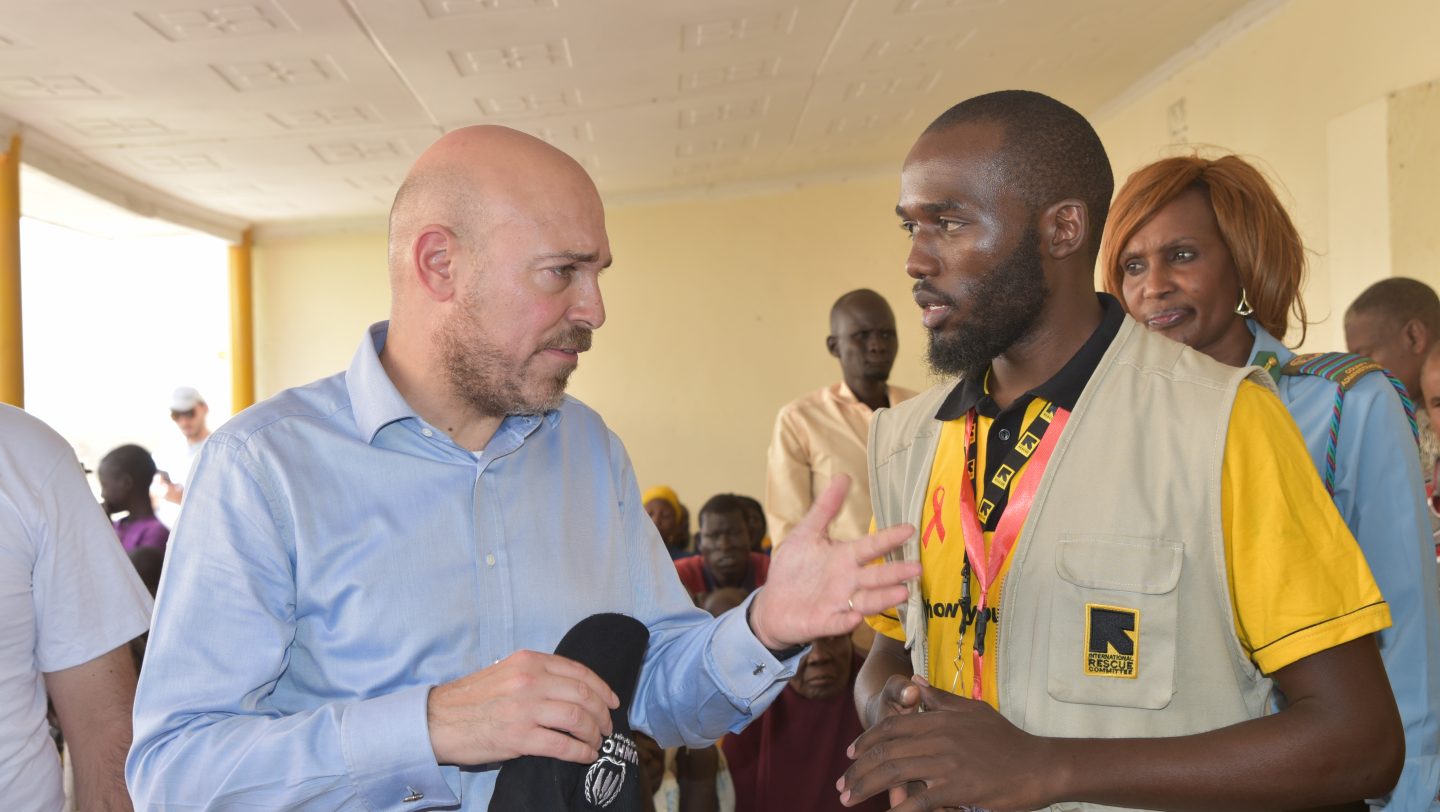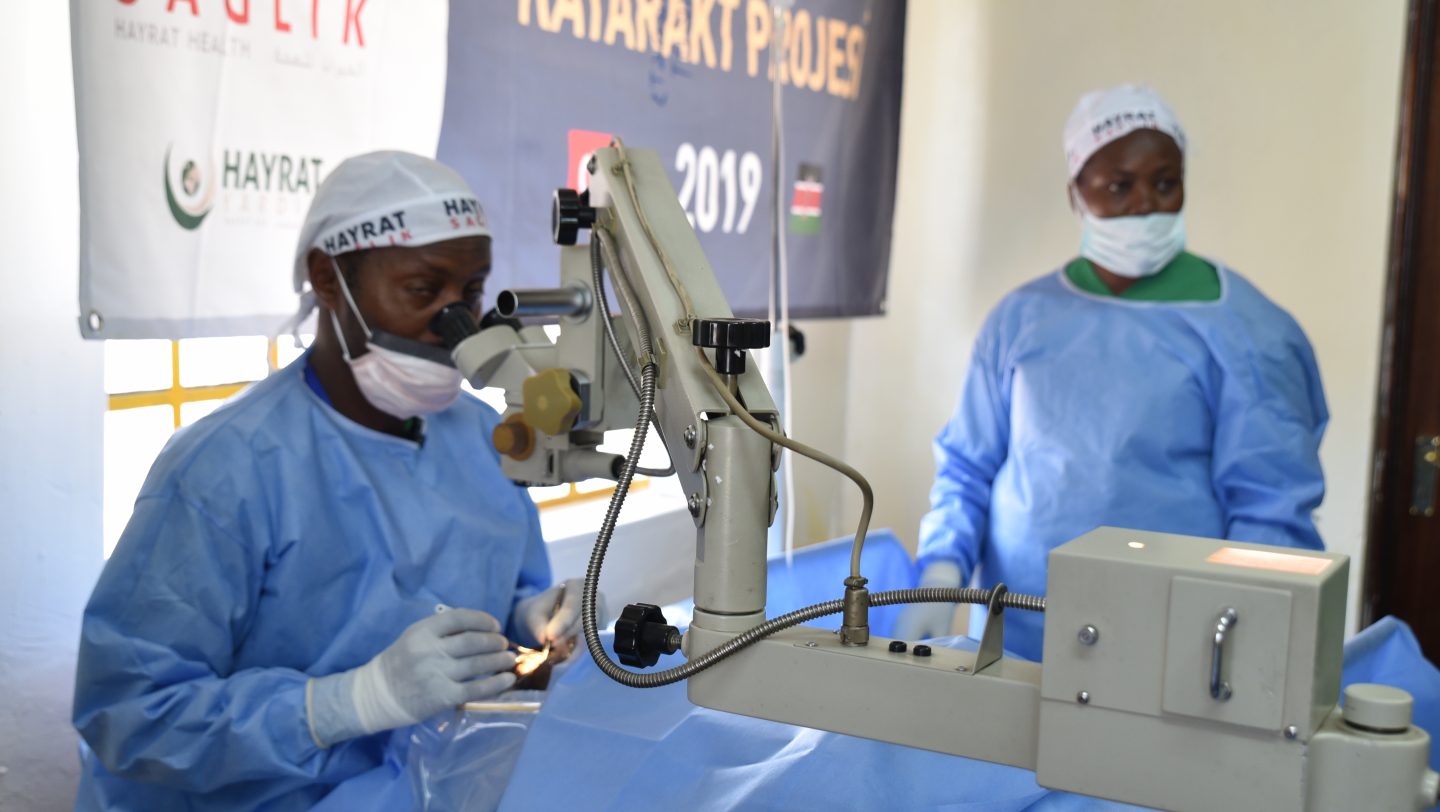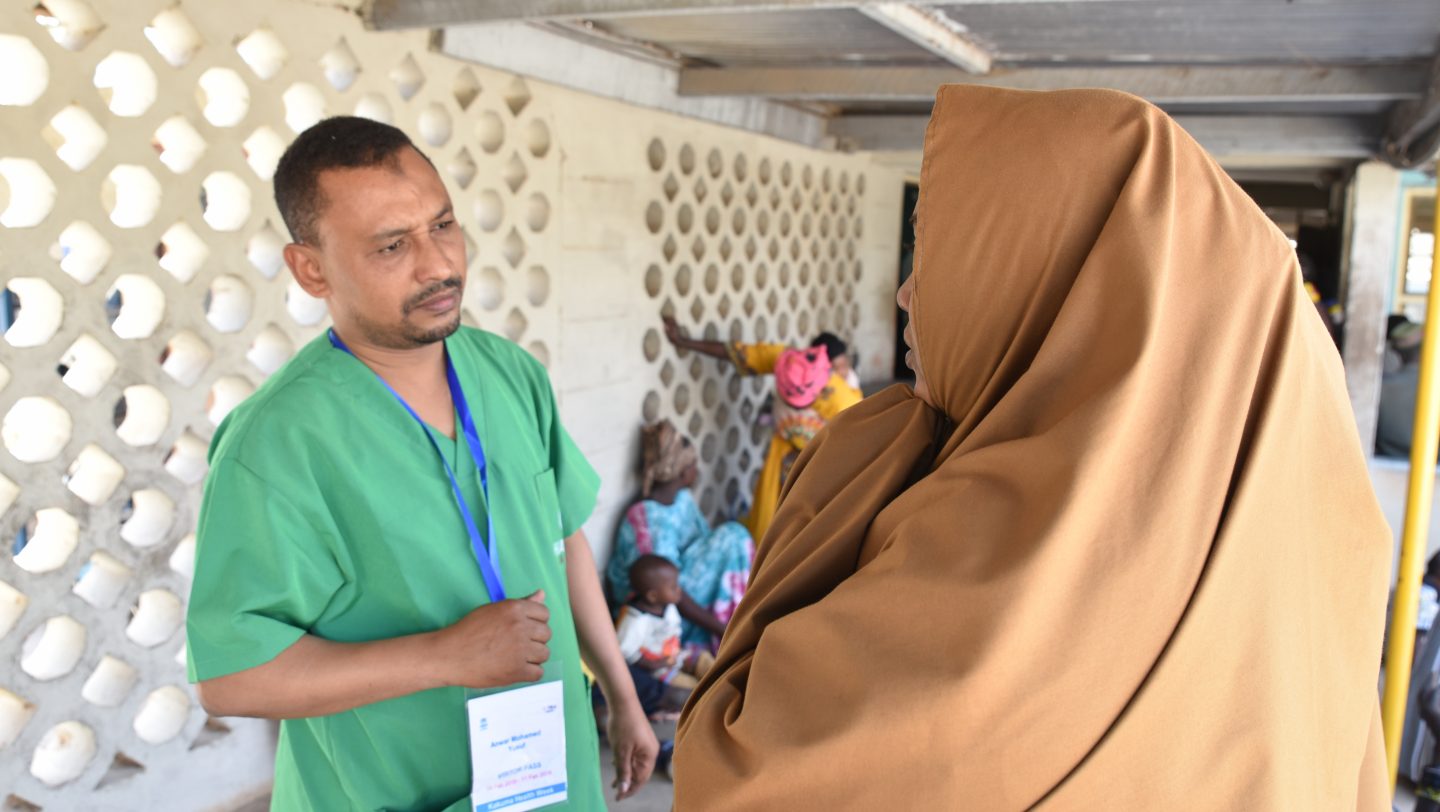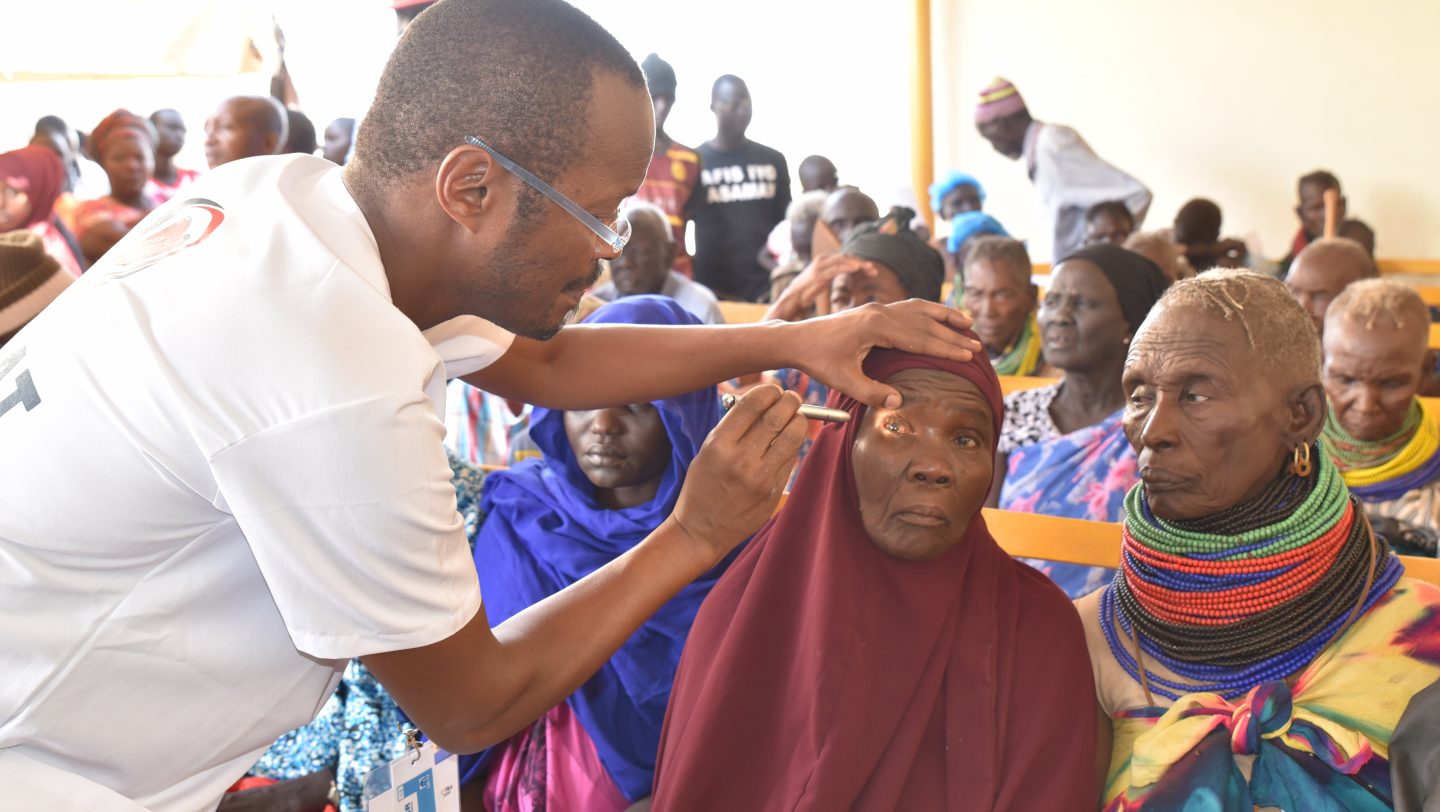Visiting Turkish doctors give specialized health care to refugees and host communities in Kakuma
More than 6000 people received free medical services during the Kakuma health week.
Dr. Betül Erişmiş, a physician talks with one of the refugees that has brought her child for treatment at the IRC General Hospital in the camp, during the health week ©UNHCR/Caroline Opile
Its early Tuesday morning, from the horizon, the sun is slowly peering through the sky in Kakuma refugee camp, in north western Kenya. At the break of dawn, Asha Murdin, 50 year old mother of 11 children leaves her compound in Kakuma 3 in haste, heading for IRC general hospital in the camp with a neat bandage on her left eye. She is expectant that the cataract surgery that has been a thorn in her flesh will soon be a thing of the past.

Asha Murdin, 50 year old mother of 11 children is among the more than 200 patients that had eye surgeries
At the IRC hospital located in Kakuma 4, Asha queues with other patients that had undergone similar surgeries waiting for ophthalmologists to remove the bandage and restore her sight. She is among the more than 200 patients from the refugee and host community who had cataract surgeries at the just concluded Kakuma health week from 8-15 February, 2019.
“I am grateful to UNHCR for organizing this health week, because now I can see clearly after the surgery.”
Asha explains that this is not her first cataract operation, she had a similar operation in Nairobi, Kenya that cost her USD 140, money that her relatives raised to enable her get the needed medical attention.
At Kakuma mission hospital, one of the two centers where free services were being offered, 52 year old Engor Londukae is waiting to see a physician. He has back and shoulder pain, a condition he has lived with for many years. It’s his third day at the hospital, considering that more than 500 patients turned up every day for the free medical camp.
“I have travelled all the way from Kainuk, 250 kilometers from Kakuma town to seek treatment. We are happy the Turkish people have come to help us access much needed medical assistance.”

52 year old Engor Londukae is waiting to see a physician at Kakuma mission hospital, one of the two centres for the free medical camp. He has back and shoulder pain, a condition he has lived with for many years. ©UNHCR/Caroline Opile
The health service week which was organized by the Turkish Cooperation and Coordination Agency (TIKA) in collaboration with UN Refugee Agency, UNHCR, and Turkana County Government, was the first medical camp of its kind with 40 Turkish and Kenyan practitioners from different fields, 23 of whom were from Turkey. The team consisted of pediatricians, cardiologists, obstetricians, gynaecologists, cataract surgeons, urologists, dentists and general surgeons. The team of doctors conducted more than 238 surgical operations, 234 eye surgeries and 950 dental procedures. They also distributed 1400 spectacles that included 1000 reading glasses and 400 eye glasses for students. More than 6000 people received free medical services during the health week.
More than 500 patients turned up every day for the free medical camp
While visiting the camp during the health week, the Turkish Ambassador to Kenya, Ahmet Cemil Miroğlu thanked the Turkana people and the Government of Kenya for hosting and supporting refugees for more than two decades.
“We are grateful for your generous support to refugees. The Turkish Government hopes to continue partnering with UNHCR and Turkana County in providing the much needed medical assistance to the local and refugee community.”

Hon Jane Ajele , County Executive for Health in Turkana County (left) charts with the Turkish Ambassador as the UNHCR Head of Office, Sukru Cansizoglu looks on. ©UNHCR/Samuel Otieno
The Turkana County Health Executive, Hon Jane Ajele thanked the Turkish Government and lauded the partners for reaching the unreached through the health week.
“This is the first time a multi-disciplinary team with rare specialties have come together to provide medical assistance. This resonates well with Turkana County vision of providing universal health care.” Hon Ajele remarked. “The knowledge and skills transfer for local doctors and nurses will build skills and fill the knowledge gap.”
Hon Ajele noted that the surgical support provided during the health week mopped up most of the surgical cases that had been queued over the years. She reiterated that the health week impacted communities within a short time and will reduce poverty often arising from high cost of medical care.
The UNHCR Kakuma Head of Office, Sukru Tayyar Cansizoglu reiterated that accessible health care was a basic human right, that both refugees and host community deserved. He applauded donor countries such as US, EU that over the years supported healthcare, and added that more needed to be done to improve quality of life.
“The support from TIKA was one of its kind that provided surgical interventions not available in Kakuma. They have brought world class health care for refugees and host community.” Sukru observed.
He noted that UNHCR needed more partners like Turkey to enable the operation close the waiting period for the much needed medical intervention
There are approximately one million persons in Turkana, around 186,000 refugees and 800,000 locals. But there are only two hospitals, Lodwar Referral Hospital and the General Hospital in Kakuma refugee camp with the capacity to provide some of the specialized services. It costs at least USD 500 to access the specialized services offered at the camp.





